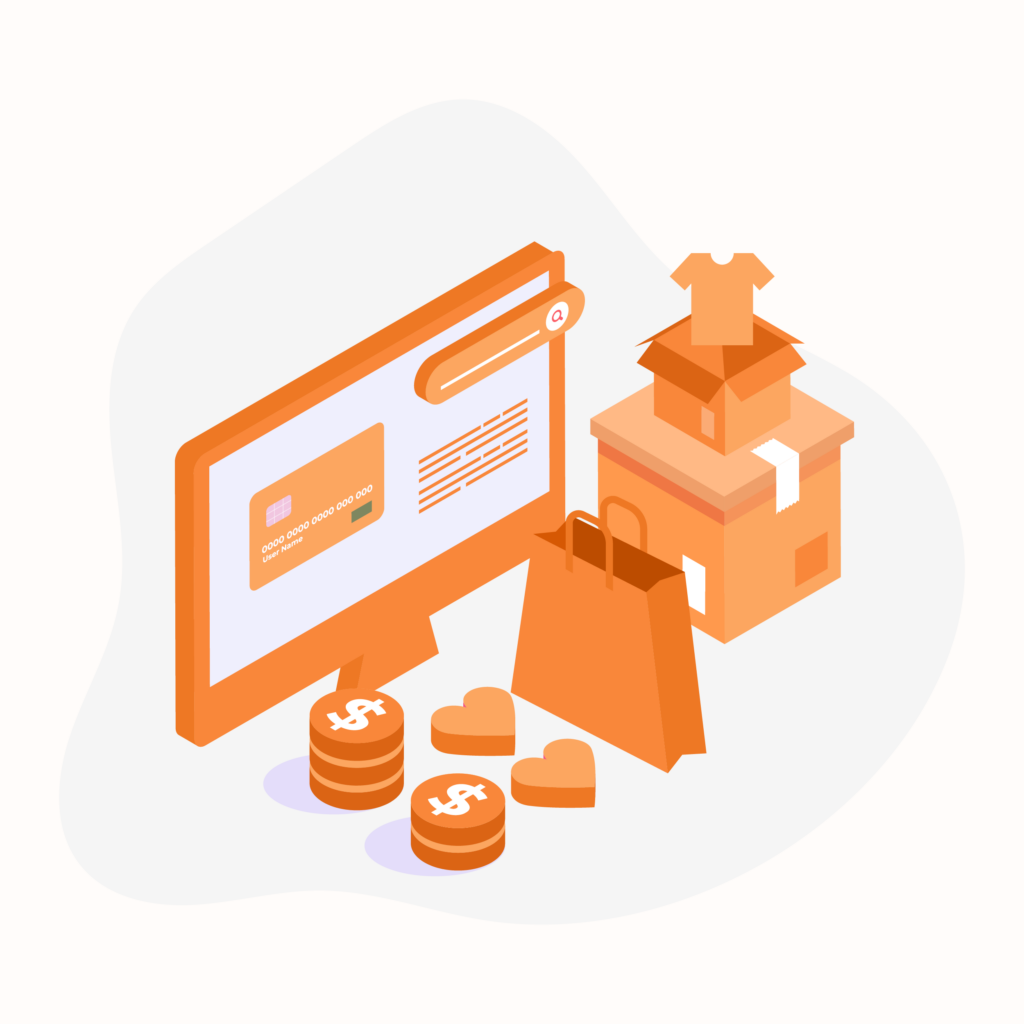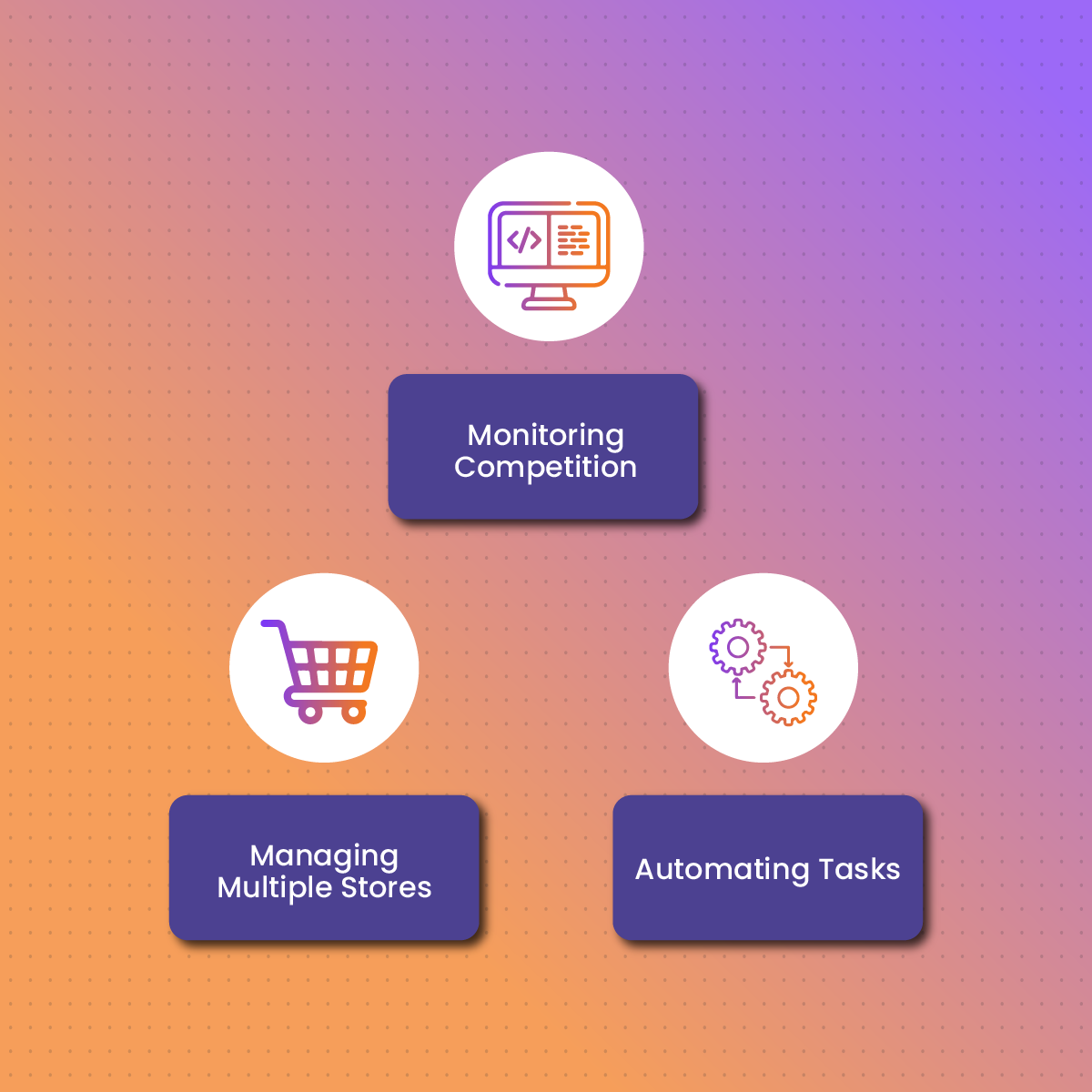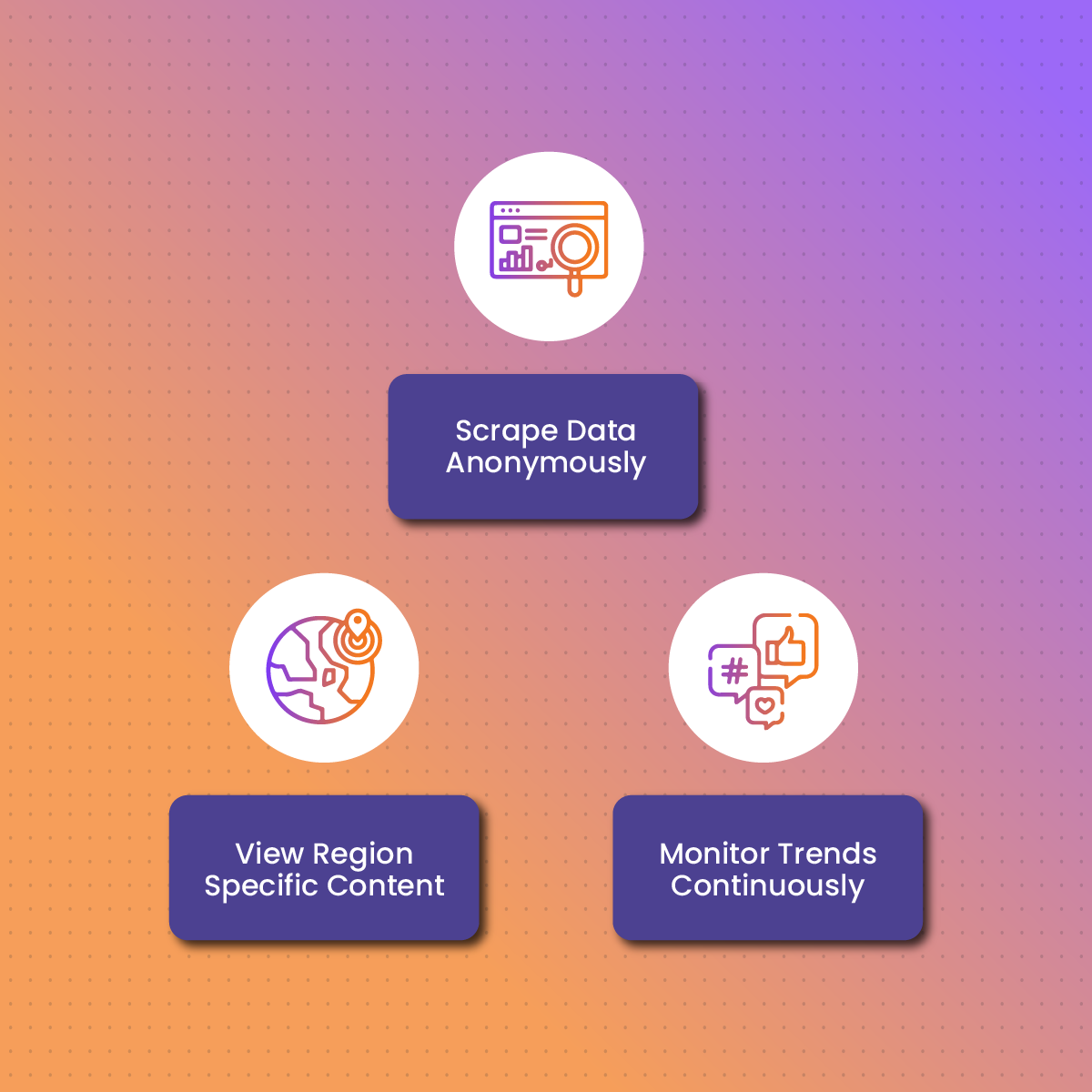Shopify is one of the most widely used e-commerce platforms, empowering businesses worldwide to build and manage their online stores. From launching new products to monitoring competitor trends, Shopify provides tools to help businesses grow. However, for tasks that require managing multiple accounts, accessing geo-specific content, or automating activities, users may encounter restrictions that limit their effectiveness on Shopify.
Shopify proxies offer a solution by enabling seamless access and optimized performance for a range of e-commerce activities. In this guide, we’ll explain what Shopify proxies are, explore their benefits and use cases, and highlight how NetNut’s proxy solutions can support your Shopify activities.
What Are Shopify Proxies?
Shopify proxies are intermediary servers that allow users to access Shopify and perform various activities while masking their IP addresses. By rerouting traffic through an alternate IP address, Shopify proxies enable users to make multiple requests, automate tasks, and access restricted content without being detected or blocked by Shopify’s servers.
For example, proxies allow businesses to manage multiple Shopify stores from a single device, conduct data scraping for competitor analysis, or automate routine tasks. By using proxies, users can bypass Shopify’s limitations on IP addresses, reducing the likelihood of being restricted for high-traffic activities.
How Shopify Proxies Work
Shopify proxies work by masking a user’s IP address and routing their traffic through a different IP, provided by the proxy server. This process makes it appear as though each request originates from a different location, which is especially useful for users handling multiple accounts or automating processes on Shopify. Proxies also enable access to region-specific content, allowing users to view Shopify pages and products as if they were located in another country.
In addition, Shopify proxies support high-frequency requests, preventing Shopify from detecting and blocking users engaging in large-scale data scraping, account management, or other activities that might otherwise trigger limitations.
Why Shopify Proxies Are Important
Proxies are essential for many Shopify users due to the unique challenges of managing e-commerce tasks on a popular platform with high traffic:
- Site Restrictions: Shopify may impose limitations on activities such as creating multiple accounts or scraping data, which can hinder businesses conducting market research or competitor analysis.
- High Traffic and Security Checks: During product launches or sales events, Shopify may restrict IPs that generate high traffic, potentially blocking users engaging in competitive sales or inventory management.
Shopify proxies provide a way around these restrictions, allowing businesses to run their Shopify operations smoothly, even during peak traffic or complex activities.
Key Benefits of Shopify Proxies
Shopify proxies offer several benefits that enhance performance and access. Here are some key advantages:
- Faster Loading Times: High-quality proxies improve loading speeds, especially during high-traffic periods on Shopify.
- Access to Geo-Specific Content: Proxies allow users to view Shopify content from different regions, making it easier to analyze competitor products, pricing, and availability.
- Enhanced Security: By masking IP addresses, proxies offer enhanced privacy and reduce the risk of detection for sensitive tasks.
These benefits make Shopify proxies a valuable tool for users seeking secure and efficient ways to optimize their Shopify operations.
Common Use Cases for Shopify Proxies
Shopify proxies enable various activities that would otherwise be restricted or detected. Here are some common use cases:
- Monitoring Competition: Proxies allow businesses to scrape data from competitor stores on Shopify, gaining insights into pricing, product availability, and trends without detection.
- Managing Multiple Stores: For users operating multiple Shopify stores, proxies make it possible to manage each store from the same device, as each proxy provides a unique IP.
- Automating Tasks: Shopify proxies support the automation of tasks like inventory updates, order processing, and price adjustments, streamlining daily operations.
These use cases demonstrate the versatility of Shopify proxies in helping businesses achieve a competitive edge.
Shopify Proxies for Managing Multiple Accounts
Running multiple accounts on Shopify from the same IP can raise flags and may result in temporary blocks. With Shopify proxies, users can assign a unique IP to each account, enabling simultaneous management without risking detection. This is especially useful for businesses with multiple Shopify stores or resellers who manage various stores across different niches.
Using proxies for account management allows users to handle daily operations, manage orders, and adjust listings without interference from Shopify’s security protocols.
Using Proxies for Shopify Automation
Automation is essential for scaling e-commerce operations, and Shopify proxies support this by allowing users to perform automated tasks securely and efficiently. By routing automated requests through proxies, businesses can avoid detection and ensure that routine tasks, such as inventory updates, order processing, and price adjustments, are completed without interruption.
Shopify proxies enable smooth, uninterrupted automation workflows, ensuring that businesses can manage high-frequency tasks without compromising security or stability.
Benefits of Shopify Proxies for Competitive Analysis
Competitive analysis is a critical part of success on Shopify, and proxies make it possible to conduct this analysis without detection. By using proxies, businesses can:
- Scrape Data Anonymously: Collect data on competitor products, prices, and availability without being identified.
- View Region-Specific Content: Analyze competitor strategies in different regions to gain insights into localized pricing or marketing tactics.
- Monitor Trends Continuously: Use rotating proxies to maintain access over time, enabling long-term data collection for trend analysis.
These capabilities allow Shopify users to stay informed about competitor strategies and make data-driven decisions for their own stores.
Why Choose NetNut for Shopify Proxies
NetNut’s premium proxies are designed for fast, secure, and reliable access, making them ideal for Shopify users. Here’s why NetNut stands out as a Shopify proxy provider:
- Speed and Reliability: NetNut proxies are optimized for high-speed connections, ensuring smooth access even during high-traffic events or product launches.
- Enhanced Privacy: NetNut offers IP masking and secure, encrypted connections to protect user data and maintain anonymity on Shopify.
- Flexible Proxy Options: With residential, rotating, and mobile proxies, NetNut provides a range of options to suit different Shopify use cases.
NetNut’s infrastructure is built for performance, ensuring that Shopify users experience uninterrupted access for their business needs.
Using NetNut’s Residential Proxies for Shopify
Residential proxies use IP addresses provided by ISPs, making them appear as authentic user connections. NetNut’s residential proxies offer unique benefits for Shopify users, allowing them to access Shopify as a regular user would and reduce the risk of detection during data collection, competitive analysis, or account management.
Rotating Proxies for High-Volume Shopify Tasks
Rotating proxies are ideal for users who need consistent access for high-frequency tasks on Shopify, such as monitoring prices or scraping data across multiple sessions. NetNut’s rotating proxies automatically assign a fresh IP with each connection, ensuring that users remain undetected and enjoy uninterrupted access.
Rotating proxies are particularly useful for users handling automation, data collection, and trend monitoring.
Setting Up and Configuring NetNut Proxies for Shopify
Getting started with NetNut’s Shopify proxies is simple. Here’s a quick setup guide:
- Choose Your Proxy Type: Select a NetNut proxy plan suited to your Shopify needs, whether residential, rotating, or mobile.
- Sign Up with NetNut: Create an account on NetNut’s website and choose the desired subscription.
- Get Your Proxy Credentials: Once subscribed, NetNut provides IP addresses, ports, and authentication details for configuring the proxy.
- Configure Proxy Settings on Your Device or Shopify Tool: Input the proxy details to start routing traffic through the proxy.
- Start Shopify Operations Securely: With the proxy configured, enjoy secure, high-speed access for account management, automation, or competitive analysis.
Following these steps ensures secure and reliable connections for all Shopify activities through NetNut’s high-quality proxies.
Frequently Asked Questions About Shopify Proxies
1. Are Shopify proxies legal?
Yes, using proxies for Shopify is legal, as long as they are not used for unlawful activities. Proxies help Shopify users perform legitimate business tasks securely.
2. Do proxies slow down Shopify activity?
NetNut’s proxies are optimized for speed, ensuring that users experience minimal, if any, slowdown during Shopify activities.
3. Which type of proxy is best for Shopify?
Residential and rotating proxies are generally ideal for Shopify, as they offer reliable, secure, and flexible connections.
4. Are proxies necessary for Shopify automation?
Proxies are essential for secure Shopify automation, as they mask IPs and help avoid detection during high-frequency tasks.









